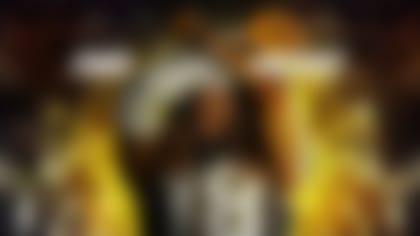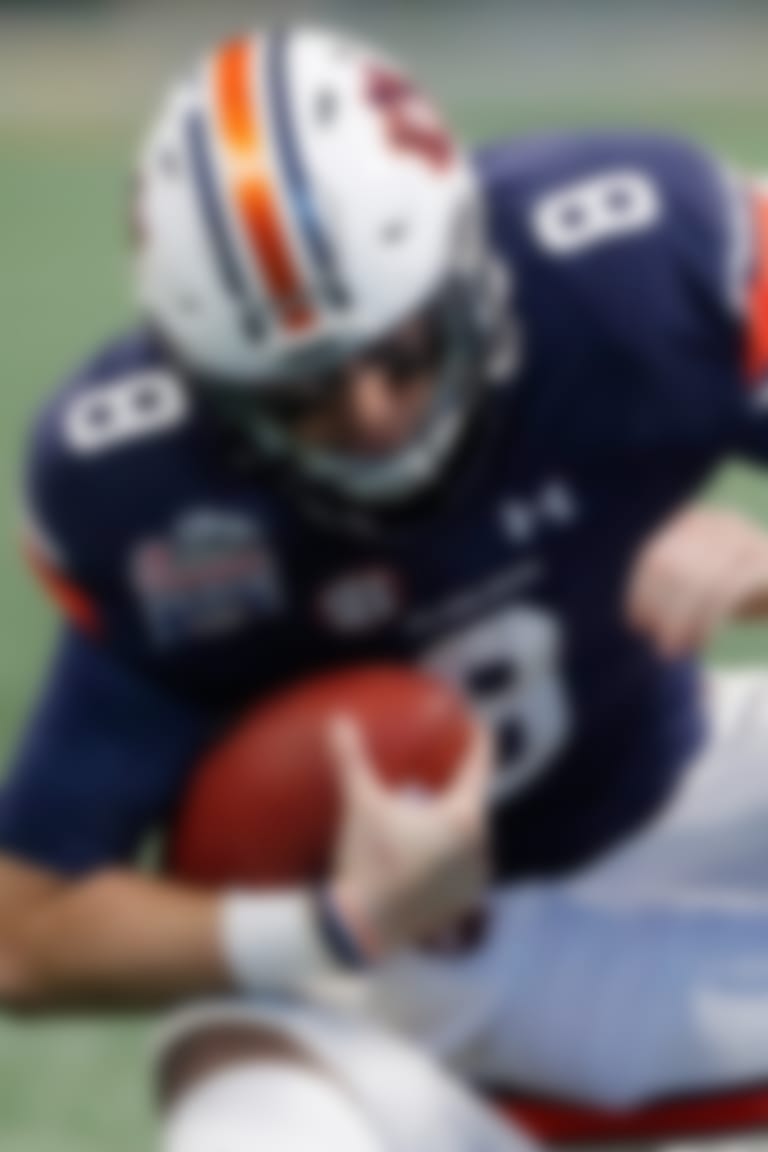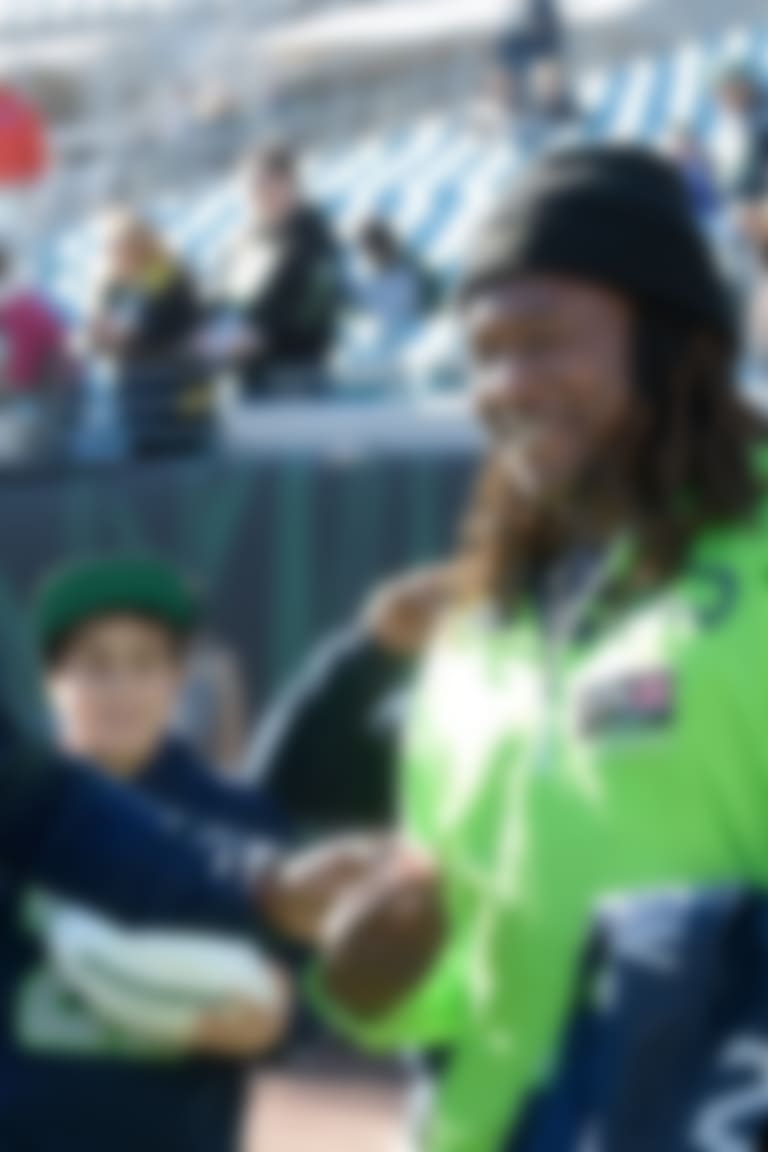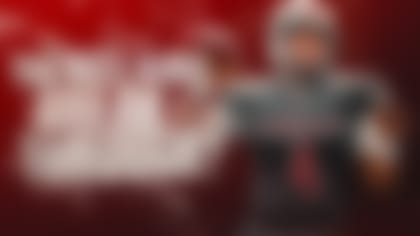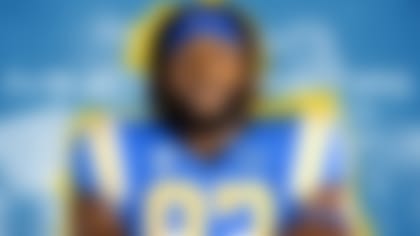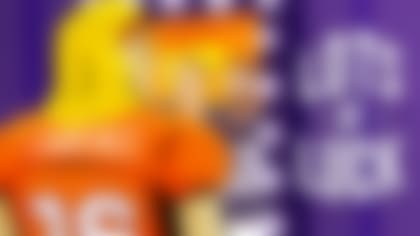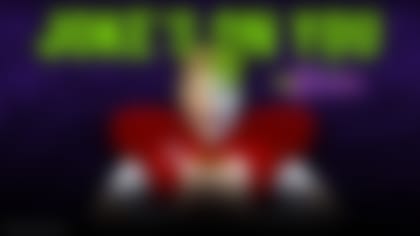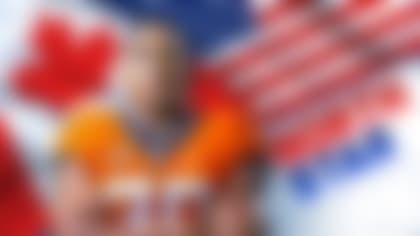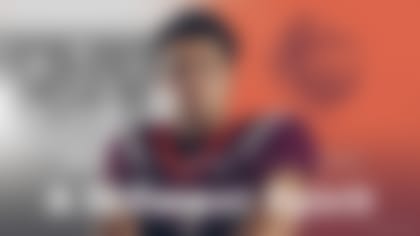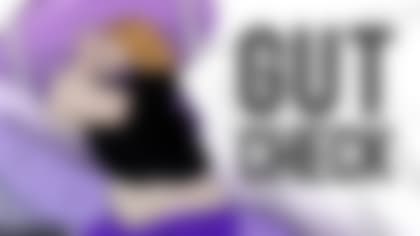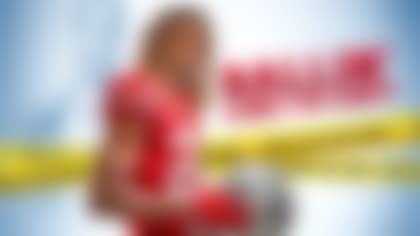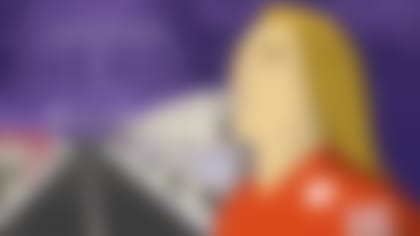UCF's one-handed linebacker, Shaquem Griffin, is on the verge of making NFL history, a feat made possible by the love and sacrifice of his twin brother, Shaquill
By Chase Goodbread | Published Jan. 22, 2018
ST. PETERSBURG, Fla. -- The best $50 Tangie Griffin ever spent went for absolutely nothing. That's what the University of South Florida was charging for each of her identical twin boys, Shaquill and Shaquem, to attend a football camp in 2012 that represented a potential scholarship offer for them both. And on the short drive to the event from their St. Petersburg home to the school campus in Tampa, Shaquill announced in the car that he would sit this camp out.
For years, the twins had played football together, were coached together, excelled together and, now, they were being recruited together.
But on this day, they wouldn't be judged together.
If any coaches at the camp were going to doubt Shaquem's ability to play the game without a left hand, Shaquill, at least, wasn't going to show them the two-handed twin for comparison.
"Normally, I would've said, 'No, I paid $50, and you're going to be on that field,' " Tangie Griffin said. "But there was something about the way he said it. I told him, 'If that's what you want to do, I like that idea.' "
Born about a minute earlier than Shaquem, Shaquill has always played the protective big brother role in the twins' relationship. Now a starting cornerback with the Seattle Seahawks who just completed his rookie season, Shaquill has only begun to relax that role in the last year.
But what he'd really like to do is switch roles.
"All the time, even to this day, I still wish it had happened to me instead of him," he says.
"It" is Amniotic Band Syndrome, a prenatal condition in which a strand of amniotic membrane can wrap around and essentially strangle a fetal extremity, causing deformity that often results in amputation.
With a twin pregnancy, this particular strand had eight wandering limbs in Tangie Griffin's womb to choose from. It could have coiled around a foot instead of a hand, which would have begotten an entirely different set of quality-of-life concerns, much less athletic ones. It could have picked just a finger instead of a hand, as it did with Wisconsin TE Troy Fumagalli.
And, of course, it could have picked Shaquill.
Instead, it claimed Shaquem's left hand, amputated at age 4, although to call what he had removed a hand is to stretch the definition of one. What he had was a mass of tissue, painful to the touch, that offered him no real functionality.
Now, Shaquem is on a quest to join his twin brother in the NFL.
Shaquill thinks his brother was the ideal candidate to overcome the associated challenges. After all, it was Shaquem who was the first of the two to climb a tree. It was Shaquem who went on to become the 2016 American Athletic Conference Defensive Player of the Year. And who else but Shaquem could have positioned himself to be the first one-handed player in the modern era to be drafted into the NFL?
Shaquill isn't sure he could have done the same.
And as Shaquem continues to crash through the various glass ceilings separating him from an NFL career of his own, the more relevant question is this: Could anyone have done the same?
Shaquill never said a word. In his formative years, when children can be the most curious, he never once went to his mother with a question about his brother's deformed hand, or even what happened to it when it disappeared altogether.
Tangie and her husband, Terry, allowed Shaquill, as much as possible, to assemble his own understanding of it.
"At 4 years old, you don't really address what's going on. But what you do address is that, 'He's not in pain anymore,' Tangie Griffin said. "I didn't explain amputation to him at age 4, he wouldn't understand it anyway. But I made sure he understood his brother wouldn't be in pain anymore."
In the middle of the night, Shaquem struck it against the bedrail of the bunkbed he shared with Shaquill, and ran to the kitchen screaming. In tormenting pain, he gripped a knife in his right hand with the intention of performing his own amputation, and his parents reached the kitchen in time to stop him.
Shaquill stayed quietly in the bunkbed. He was paralyzed by the commotion, too afraid to seek it out When he couldn't get back to sleep, he sat with Terry in another room while Tangie comforted Shaquem. She had the amputation performed the following day.
The big brother in Shaquill was never afraid to defend Shaquem when necessary. He had rabbit ears for an insult or a cruel joke aimed at his brother, and policed whatever meanness might await around the schoolyard corner.
He didn't find the jokes funny, but Shaquem often did.
Shaquem disarmed apprehensiveness in his peers with the deadly combination of a dynamite smile and a sense of humor, and socialized easily.
Shaquill's intolerance for teasing flashed once at the twins' daycare center when, at age 7, he pushed a girl who called Shaquem "pickle hand."
Shaquem wasn't upset by it, nor were his parents.
"We had to get Shaquill to the point where he understood that if Shaquem is OK with it, is joking about it, then you've got to be OK with it, too," Tangie said.
Save your sympathy. Hang onto it for someone who wants it. Someone who needs it. Someone other than Shaquem Griffin.
The UCF linebacker is bound and determined to show scouts over the next several months what Chris Wiesehan has known for a couple of years -- that taking advantage of his missing hand, for an opposing coach, is a fruitless exercise.
The Temple offensive line coach is glad to have Griffin gone from the AAC. He was a thorn in the Owls' side as a UCF starter, where in two games he collected three tackles for loss, three pass breakups, an interception, a forced fumble and a sack.
"When you play against him, there are no limitations," Wiesehan said. "He plays with such a motor, and he understands his body and understands leverage very well. His ability to strike and get off a block is elite."
Shaquem enjoyed two wildly successful seasons as a pass-rushing outside linebacker at UCF, but at 6-foot-1 and 220 pounds, he's significantly undersized for that role in the NFL. Scouts project him as a valuable core special teams player on Sundays who likely will be developed defensively at weakside linebacker, or perhaps strong safety.
There is a conviction in the scouting community that he will not only be drafted, but will also have the requisite skills and mental fortitude to stick to a 53-man roster, which isn't a given for all draft picks.
"It's a certainty," said an NFC scout. "I've seen players with two hands get blocked all day against guys who Shaquem won't have a problem with, because he's an innately violent player. Those guys are hard to find. … There are a few missed tackles because he can't completely wrap up all the time, but he hustles his way into tackles other guys would never get to. His motor is rare."
For all the NFL scouts willing to pound the table on Griffin's behalf, there will be others who won't put their reputations on the line for a one-handed player.
"There'll be some hesitation, especially (with) younger scouts, or guys who are in a new place, a new team, or with a new GM," the NFC scout said. "Obviously, some will have trouble signing off on a guy trying to do something that hasn't been done before."
Griffin's reliability as a tackler improved from his first year as a starter at UCF to his second. According to Pro Football Focus, he missed 13 percent of his tackle attempts in 2017, down from 16 percent the previous year, although both figures are below PFF's national average for an edge defender.
Of course, there will be doubters. There always have been.
His youth coach, Terrell Holmes, saw how a missed tackle would motivate Shaquem by the time he was 8 years old.
"I could see it on his face, if he missed a tackle, he thought everyone would assume it was because he couldn't wrap," Holmes said. "I would just tell him he was too far out of position. But the next play, you'd hear the crowd ooh and aah, because he would lay a hammer on someone."
Shaquem is generally dismissive of doubters, content to prove them wrong without getting too upset about it.
Shaquill, on the other hand, is annoyed by them.
At Lakewood High in St. Petersburg, Shaquem roamed the middle of the field at safety, while Shaquill played cornerback. That often put Shaquill right beside the visiting sideline, where he would hear occasional trash talk or derogatory comments about Shaquem not only from opposing players, but opposing coaches as well.
Growing up, it was usually the adults who set off Shaquill's alarm for insensitivity, much more than children, whose curiosity was natural. And here he was, once again, witnessing taunts aimed at his brother from immature grownups.
"He'd hear them say, 'We're going to go after the kid with one hand. Throw it to his man. He's the weak link,' " said Spartans coach Cory Moore.
And how did he deal with it?
"Shaquill would make his man pay," Moore said.
As remarkable as an NFL career for Shaquem would be, it would not come without some precedent.
Old precedent.
The Boston Yanks drafted Ellis Jones in the eighth round of the 1945 draft. Jones was a two-way player at Tulsa, at offensive guard and linebacker, and made a college all-star team that squared off against the 1943 NFL champion Chicago Bears. At age 11, he fell from a tree and suffered a compound fracture of his right arm. Gangrene set in, resulting in an amputation eight inches below the shoulder.
"I played football before I got hurt," Jones once said, according to a New York Times obituary. "It never occurred to me that I couldn't keep playing. I guess I was too dumb to think I could not do it."
It didn't occur to Griffin, either.
It couldn't.
Former coaches describe Shaquill as more of a finesse player and Shaquem as a bully in a helmet, the harder hitter of the two and a true natural at linebacker.
"We used to tell him, 'You can't drop any balls. Not one. There's no excuse for you -- you have to take the hard road. If kids are giving 100, you have to give 110,' " said Andre Griffin, the twins' older brother by 10 years. "Shaquem was built for this."
The parental strategy for Shaquem's upbringing was to raise him no differently than if he'd been born with two hands. Terry took over the twins' athletic training, and his expectations were the same for them both. He hand-built a few workout accessories that helped Shaquem lift weights. One helped him bench press, another helped him perform biceps curls.
"He was a mad scientist in that garage," Shaquem said. "I don't think there's anything he can't build."
Some nights, Griffin would awaken to a banging sound or other noises in the garage, and settled back to sleep knowing that in the morning there would be something new for his workouts. He'd take the contraptions to the Lakewood High weight room, where only Shaquill served as his full-time spotter.
When he arrived at UCF, Shaquem was given a prosthetic to help him with his workouts. Former UCF strength coach Zach Duval arrived with the Scott Frost staff two years ago, by which time Shaquem had already been using the prosthetic for three years. He marveled when he first saw it.
"He just sat down, put a little lube (hand sanitizer) on it, and pushed 405 (pounds) on the bench press. It was impressive," Duval said. "We modified all the pulling exercises. With Shaquem, it was 100 percent a push. All the pulling exercises were modified into more plyometric stuff, banded stuff. Anything with a band, he could work with."
Duval, who has since moved onto Nebraska to join Frost's new staff in Lincoln, has worked with his share of top athletes in 22 years as a strength coach. He spent four of them training Oakland Raiders star Khalil Mack at Buffalo, and considers Shaquem to be Mack's equal from a work-ethic standpoint.
"As far as just going hard every day, and competing in every way, those two are at the top for me," Duval said.
